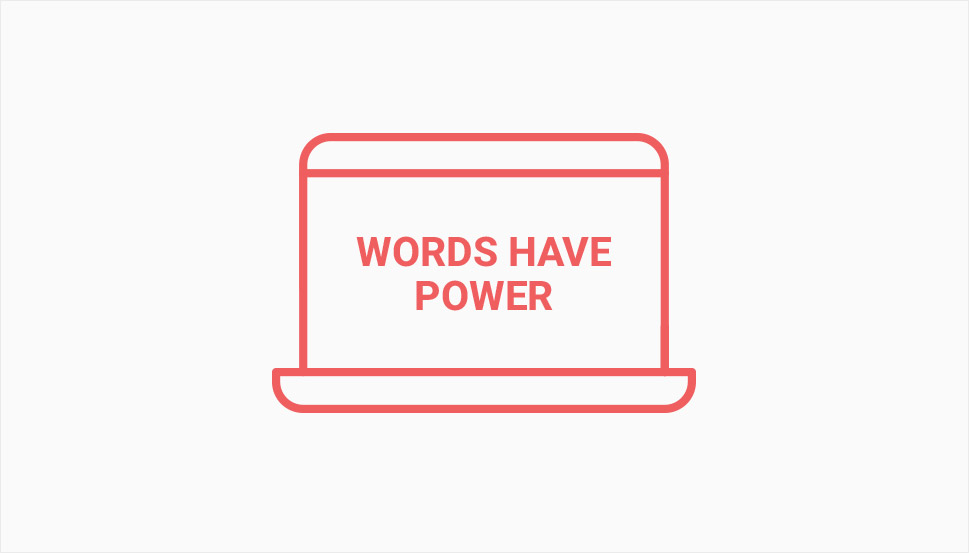A Beginner’s Guide to Power Words in Content Marketing

The key to attracting the right type of audience to your website or blog lies not only in writing high-quality posts, but also in making sure that every piece of content you create has a suitable, catchy, and powerful title. After all, more often than not, the title is the first thing people see when it comes to your content. Therefore, if your titles aren’t attractive enough for people to click on your articles, then all the hard work you put into writing the actual content will be in vain. Luckily, there are plenty of ways to master the art of producing catchy titles. While many people resort to using headline analyzer tools for help, there are also other things and techniques you can do on your own to improve the quality of your headlines – and this is exactly where power words come into play.
Therefore, we are going to use this opportunity to talk more about what power words are and how they can benefit your site. In addition, we are going to mention some of the most commonly used types of power words in content marketing in general – regardless of a specific niche or industry you might be in. Without further ado, here goes:

Simply put, power words represent meaningful and carefully-chosen words (or sometimes entire phrases) used to elicit different types of responses, or rather, different emotions out of those reading them. These emotions can range from anything like happiness, curiosity, and motivation all the way to fear, sadness, and even anger.
Generally speaking, these words are meant to get people to take a certain action such as clicking on an article, subscribing to a newsletter, buying a product, or subscribing to a service. As such, power words can be used in all spheres of digital marketing, including social media, email marketing, and of course, content marketing as a whole.

Due to their ability to influence the way users act, it’s safe to say that there are many benefits to using power words in your content marketing strategy. This includes using power words in your titles (or headlines) as well as in other areas of content marketing.
For example, captivating email subjects have a huge potential to boost email open rates, while previously mentioned headlines can greatly improve your traffic and increase click-through rates in SERPs. A compelling call-to-action on a landing page can help motivate a user to become your customer. This can do wonders for your conversions and ultimately, only lead to more sales. In short, not only can power words allow you to have better rankings on Google and boost your SEO in general, but they can also bring you more clients and allow you to have bigger profit in the long run.
It is precisely due to all these reasons that copywriters and other marketers use the reach and influence of power words to encourage people to do what they want them to.
Now, there are many different ways in which you can classify power words. But for this article, we’ve created a list of five different types of power words you should look into or at least be aware of, regardless of your business type and your marketing end goal. Each type serves to provoke a specific kind of emotion from the person viewing them, which is exactly what we took into account while categorizing them.
Encouragement Words
Sometimes, all people need is a little push to make them go forward – and some words of encouragement can do wonders when it comes to influencing how they feel and behave. Encouraging words can help people feel better, they can get them to feel inspired and even drive them to take a specific action. Here are some of the most noteworthy encouragement power words you can use in your headlines:
-
Amazing
-
Ascend
-
Awesome
-
Awe-inspiring
-
Mind-blowing
-
Perfect
-
Brilliant
-
Spectacular
-
Striking
-
Strengthen
-
Excellent
-
Fantastic
-
Unique
-
Incredible
-
Wonderful
A headline example that features encouragement words:
Five Excellent Ways to Get More Conversions
Trust Words
As their name suggests, these power words evoke trust in people. Trust words should make people feel like they can rely on you and believe in things you say and should allow them to feel secure if they get involved with anything that your business offers – be it a product, a service, or even a simple how-to article. Use some of these words in your headlines to make your audience (or potential customers) trust you more:
-
Safe
-
Secure
-
Protect
-
Smart
-
Risk-free
-
Fortify
-
Shield
-
Effective
-
Solid
-
Efficient
-
Best
-
Complete
-
Ultimate
-
Results
-
Advantage
A title example featuring trust words:
X Effective Ways to Fortify Your Website’s Security
Fear Words
Fear is undoubtedly one of the most powerful emotions there is. It is precisely why plenty of news channels incorporate many fear words into their reports. They do this to ensure that your attention is effectively drawn to their news and that you don’t miss out on any significant updates in the future.
Here are some fear words you can use that can evoke strong emotions in people:
-
Anxiety
-
Assault
-
Backlash
-
Danger
-
Fail
-
Miss Out
-
Painful
-
Panic
-
Caution
-
Crisis
-
Threat
-
Worry
-
Wreaks havoc
Here’s an example of a fear word when used in a title:
The Real Danger of Using Outdated Plugins
Anger Words
You’d be surprised how effective anger can be when used in a positive and inspiring way. If implemented properly, this powerful emotion can do a whole lot of good – inspire people to advocate for a worthy cause, like contribute to a charity or do anything else that has a goal of seeing a positive change in our society or environment. Here are some power words you can use to ignite anger and inspire your audience to take a certain action:
-
Abuse
-
Annoy
-
Arrogant
-
Blatant
-
Bully
-
Corrupt
-
Irritate
-
Oppressive
-
Rage
-
Rebel
-
Rude
-
Scam
-
Violate
-
Vicious
-
Victim
Here’s an example:
How to Prevent Your Website from Falling Victim to Blatant Security Attacks
Curiosity Words
Curiosity is a natural impulse that many humans have. When intrigued, people simply can’t resist the need to find out more about a specific subject – and some words and phrases can get your audience to do just that.
Check them out:
-
Off-limits
-
Be the first
-
Behind the scenes
-
Interesting
-
Limited
-
Members-only
-
Top-secret
-
Shocking
-
Blacklisted
-
Stunning
-
Unusual
-
Sneak peek
-
Thought-provoking
-
Login required
An example of a title with a curiosity phrase:
An Exclusive Sneak Peek into the Upcoming WordPress Update
Wrapping Things Up
Whether your end goal is to get people to click on that Buy button, or if you simply want to get more traffic and gain brand authority in your field, power words can help you go a long way. They can make people feel certain emotions, help trigger their curiosity, and eventually, encourage them to take a specific action. There are tons of different types of words and word classifications you can use for any goal, and the list of power words and phrases we’ve mentioned above is far from the ultimate one. Still, we think that these should be more than enough for a good head-start. And if you plan to find words that would be more fitting with your brand’s tone and overall business goals, we suggest that you look into online dictionaries like Thesaurus or Synonym.com for more inspiration.



